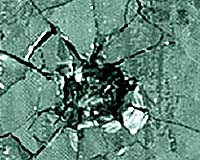 |
Tokyo (UPI) Oct 7, 2010 Japan aims to curb its reliance on China for rare earth minerals particularly after China abruptly halted mineral shipments to Japan in recent weeks due to a diplomatic dispute between the countries. Rare earth elements are indispensable to a range of green energy and high-tech components such as wind turbines, low-energy light bulbs, batteries for hybrid and electric cars, lasers, fiber-optic cables, cell phones and flat-screen monitors. China, which produces 97 percent of the world's supply of rare earth elements, slashed its export quotas by 72 percent for the second half of this year, even before the Japanese coast guard arrested a Chinese trawler captain in disputed waters between the two countries. While Japan consumes more rare earths than any other country, it has no deposits of its own. "Japanese companies have become painfully aware of the risks of relying so greatly on China for strategic metals," said Akio Shibata, chief representative at the Marubeni Research Institute in Tokyo, The New York Times reports. Last week Japanese Trade Minister Akihiro Ohata said the government was considering starting a stockpile of rare earths in case of future trade interruptions. Experts say that some manufacturers that rely on the elements have begun accumulating inventories enough to last for a few months or up to a year. Japan is also seeking sources other than China for rare earths: Japanese trading company Sojitz, for example, is negotiating the rights to a Vietnamese rare earth mine, and industrial conglomerate Sumitomo intends to work with the Kazakhstan government to salvage rare earth elements from uranium ore residues. Japan is seeking to develop its own alternatives to rare earths. Japan's New Energy and Industrial Technology Development Organization announced last week that it had developed a hybrid vehicle motor that doesn't need rare earth metals, Japan's Nikkei News reports. And Hitachi Metals is working on a magnet that uses copper alloys, thus reducing the need for rare earths. The company is also trying to extract rare earths from magnets in old computer hard drives. China, for its part, maintains that its controls reflect a long-term strategy aimed at sustainability. "What we pursue is to satisfy not only the domestic demand but also the global demand of rare earths. We should not only stand from the present, but should also look forward to the future," Premier Wen Jiabao said Wednesday at the sixth China-EU Business Summit in Brussels, Xinhua reports.
Share This Article With Planet Earth
Related Links Space Technology News - Applications and Research
 A Catalyst Sandwich
A Catalyst SandwichEvanston IL (SPX) Oct 06, 2010 Northwestern University researchers have taken another step towards realizing a new class of polymerase chain reaction (PCR) enzyme mimics, opening the door for the development of highly sensitive chemical detection systems that go beyond nucleic acid targets. The blueprint for building synthetic structures to detect and signal the presence of targets such as small molecule medical analyte ... read more |
|
| The content herein, unless otherwise known to be public domain, are Copyright 1995-2010 - SpaceDaily. AFP and UPI Wire Stories are copyright Agence France-Presse and United Press International. ESA Portal Reports are copyright European Space Agency. All NASA sourced material is public domain. Additional copyrights may apply in whole or part to other bona fide parties. Advertising does not imply endorsement,agreement or approval of any opinions, statements or information provided by SpaceDaily on any Web page published or hosted by SpaceDaily. Privacy Statement |